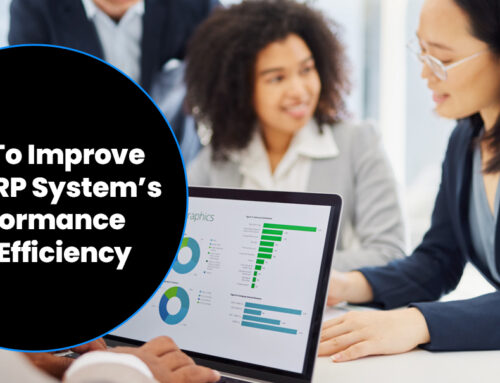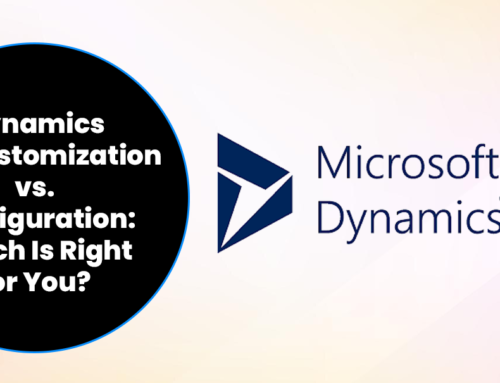
Enterprise resource planning (ERP) software platforms are amongst some of the largest that you’ll ever encounter — understandably so because these systems are capable of serving as the digital core for some the world’s largest corporations. With features and functionalities to accommodate virtually every department and division within a company, ERP implementations can be extremely complex and implementation failure is costly. This is not a plug-and-play software platform, even when the ERP system is being deployed for a smaller business — which, notably, is a trend that we are seeing far more frequently as of late thanks to the development of highly-scalable cloud ERP platforms.
ERP implementation is a multi-phased process that can take anywhere from a matter of weeks to many months, depending upon factors such as the size of the business, the number of ERP modules that will be utilized, the type and number of integrations that must be included and the degree of customization that is required. But what are the phases and which of the ERP implementation phases is the most important?
What is an ERP Implementation?
Before we examine the phases of ERP implementation, it’s important to understand the process in a more general sense. ERP software implementation refers to the configuration and customization of the platform, in addition to the modification of business processes so that the enterprise resource planning software is used to its full potential.
There are six basic ERP implementation phases, although there are no hard and fast rules because each organization is unique. Therefore, the processes may be adjusted to suit a company’s exact needs; there can also be some overlap amongst the phases.
The Six ERP Implementation Phases
The six ERP implementation phases can span a matter of weeks or months, depending upon factors such as the size of the system and the degree of customization and configuration. The following is an overview of these ERP implementation phases.
- Discovery and Planning Phase – The discovery and planning phase involves getting to know the business, its processes, its pain points, and its goals for the future. Discovery usually involves representatives from all of the departments and divisions that will be using the ERP platform, as they are best positioned to provide input and insight that will be essential for understanding the organization’s needs for the enterprise software system.
Once all of the information is gathered, a plan is formulated. An ERP implementation plan is a detailed document, specifying the exact customizations, configurations, and integrations that must be performed during implementation. The plan will also include information on related process flows. When all is said and done, the implementation plan will serve as a sort of roadmap for the ERP implementation process. As such, one could argue that discovery and planning is the most important of the ERP implementation phases because if this phase is flawed, you will see an adverse impact on all subsequent phases.
- Design Phase – In the design phase, the ERP implementation team will perform a comprehensive analysis of all the processes and procedures that will involve the ERP platform. It’s essential that the team has a solid understanding of the processes that will be used in conjunction with the enterprise resource planning software because these processes will largely determine what configurations and customizations are necessary. These issues were all addressed in a more general sense in the discovery and planning phase. In the design phase, the examination is far more detailed, technical, and granular.
The implementation team will also identify and analyze all data sources and data that must be migrated to the ERP system and/or synced via integrations. All of this information is used to architect and design the ERP software so that it will meet the company’s exact needs in the most efficient manner possible.
- Development Phase – In the development phase, the ERP implementation team will put their plan into action, working on configurations, customizations, and integrations. Data is migrated during this phase too. This is an intensive and highly-technical phase where the rubber really meets the road, so to speak.
- Testing Phase – The testing phase involves a thorough and progressive testing process, with a team of ERP testing experts going through the software system with a fine-tooth comb to identify any problems in terms of functionality, process flow, and so on. Integrations are tested to ensure they are working properly. Processes are tested. The platform’s many features and functionalities to ensure that everything performs as expected. Repairs and reconfigurations are made as the need arises and the testing process is repeated until everything is perfected.
The latter portion of the testing phase — typically just before deployment — often involves representatives from the various departments and divisions that will be using the ERP system. These users have an opportunity to preview the enterprise software, offering feedback on the process flows, user paths, and other aspects of the platform. These beta testers can offer some very useful insights — insights that may otherwise elude the ERP implementation team.
- Training Phase – Although it can be costly the training phase is essential. During this phase, users are provided with comprehensive training as they learn how to use the ERP system’s many features. This is when users learn how the new enterprise software will be integrated into their daily tasks and process flows. They gain practical experience using the ERP software in a virtual sandbox environment, preparing them to get to work with the new platform as soon as it’s rolled out. This is also where hiring the right ERP professionals makes a huge difference the quality of your hires affects how well your users will be trained.
User training ensures that everyone is comfortable with the new enterprise software and ready to make the most of this new technology on deployment day.
- Deployment Phase – The deployment phase is perhaps the most exciting for the business because this is when the switch is flipped and the ERP platform goes live! Configurations, customizations, and integrations are complete. Everything has been tested and verified to be working as expected in conjunction with the company’s many different processes. Data has been migrated into the new platform. You’re ready for rollout.
The actual deployment can be rather challenging because you want to minimize downtime. Sometimes, downtime is unavoidable because the ERP platform typically takes the place of other software systems. This means that there may be a bit of downtime as the old system is “turned off” and the new ERP software is “turned on” in its place.
Which is the Most Important of the ERP Implementation Phases?
Each of the six phases of ERP implementation is important. Each phase has a unique objective that is critical to the software implementation process as a whole.
That said, most would probably agree that the discovery and planning phase is the single most important ERP implementation phase. The reason: it is the one phase that impacts all subsequent phases. Without a thorough discovery and well-thought-out plan, a successful ERP implementation is virtually impossible.
User training — the fifth ERP implementation phase — is arguably right behind discovery and planning as the second most important. Without proper training, deployment can be disastrous. Users may feel as though the digital rug has been pulled out from under them because their old system is no longer available and they’re uncomfortable with the new ERP interface. This can have a profound impact on productivity, resulting in significant downtime and poor morale.
With this in mind, it is important to work with an ERP implementation team that offers comprehensive training sessions. Other strategies, such as utilizing “superusers,” can also streamline the process.
Implementing ERP systems is no small task, but with the right technology partner, the process can be quite painless. At Cox-Little, we understand how stressful an ERP deployment can be. We believe that discovery, planning, and training are vital components of a successful, cost-effective ERP implementation. If you’re ready to begin the process, contact the Cox-Little team and let our ERP experts guide the way.





